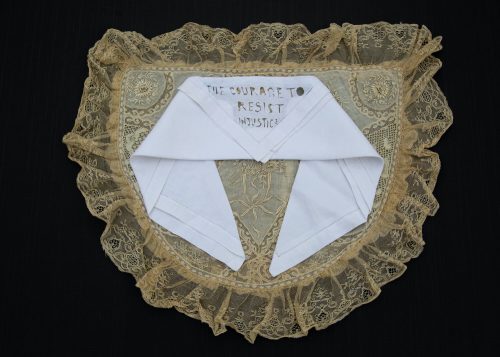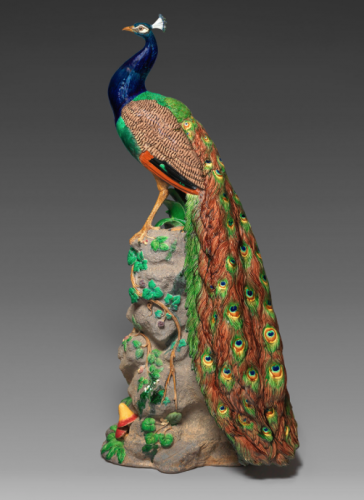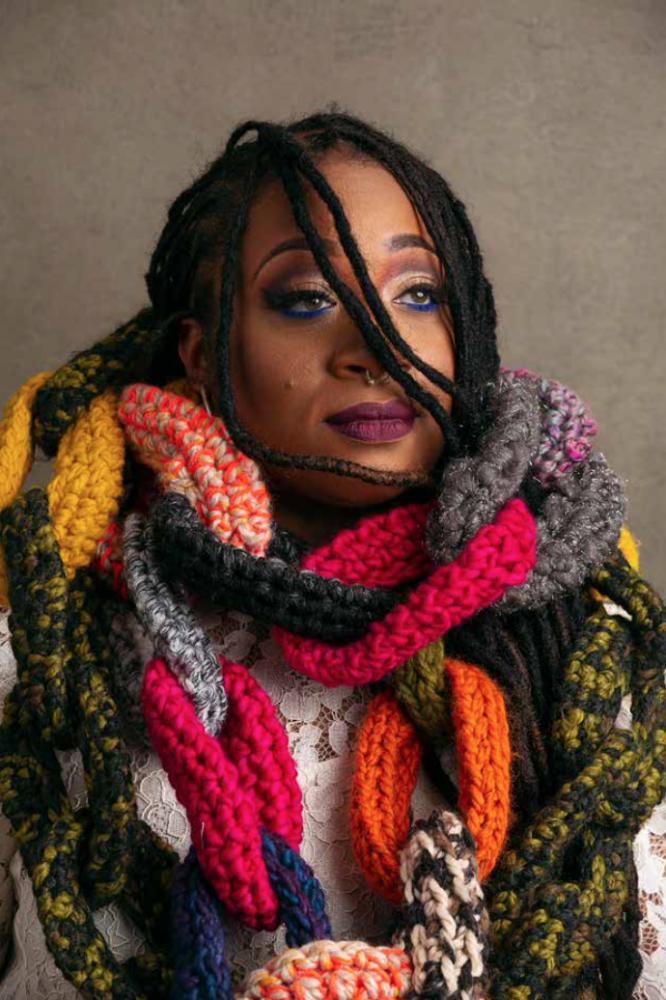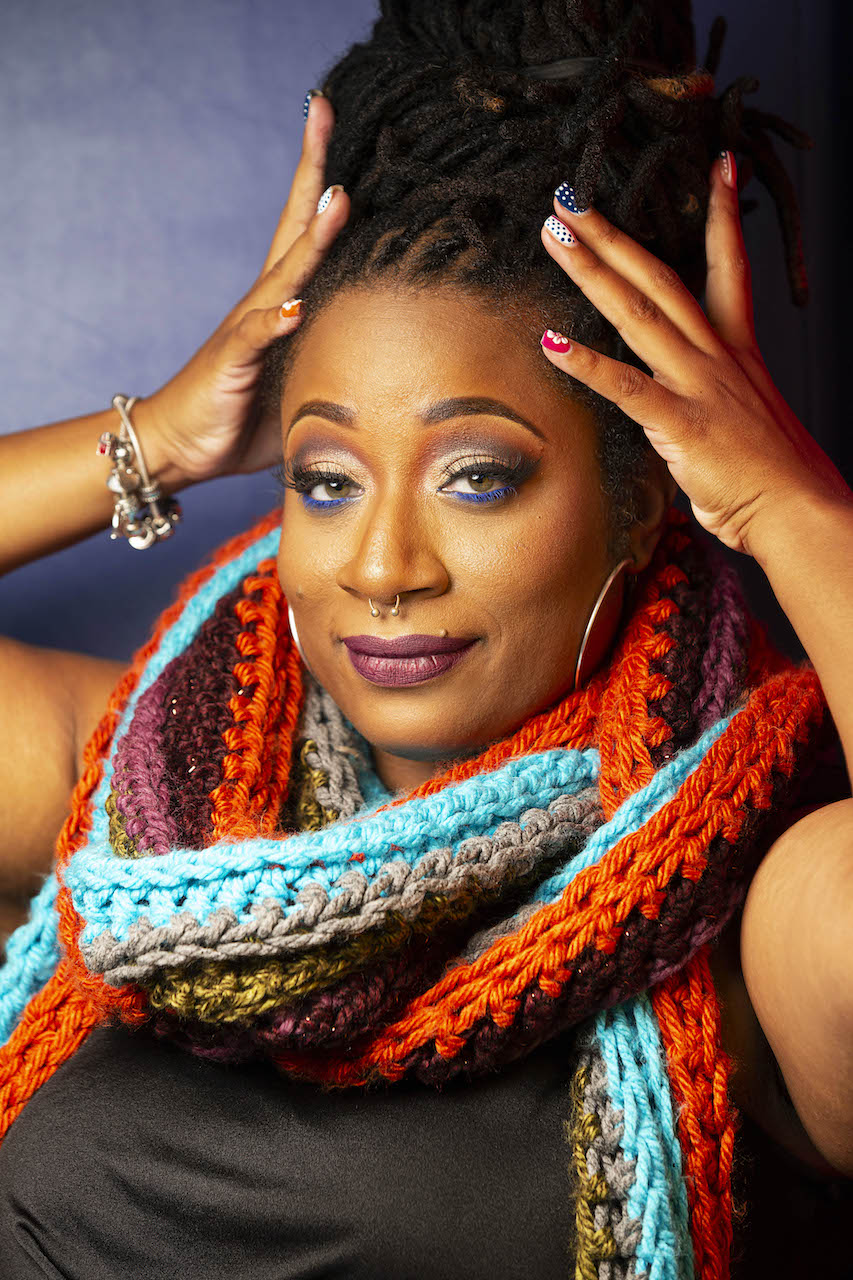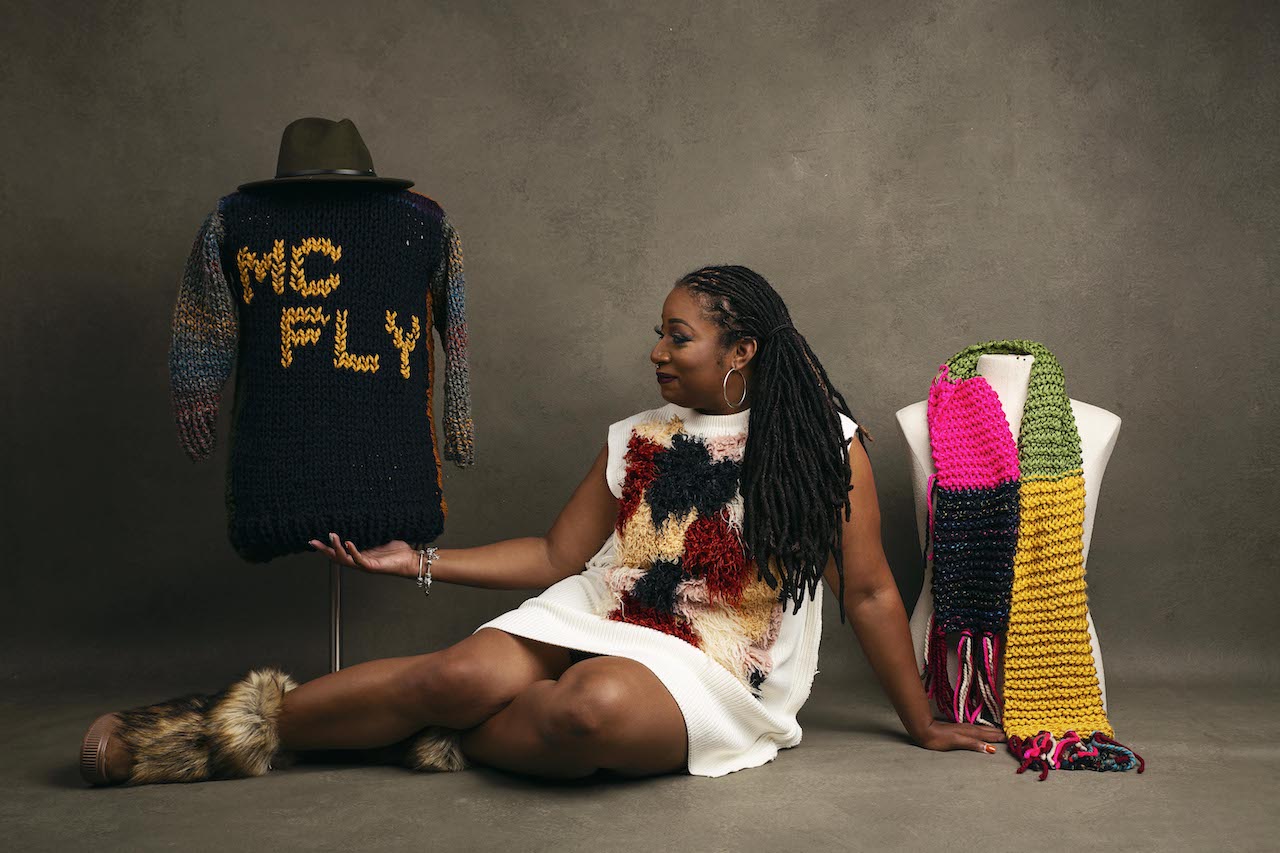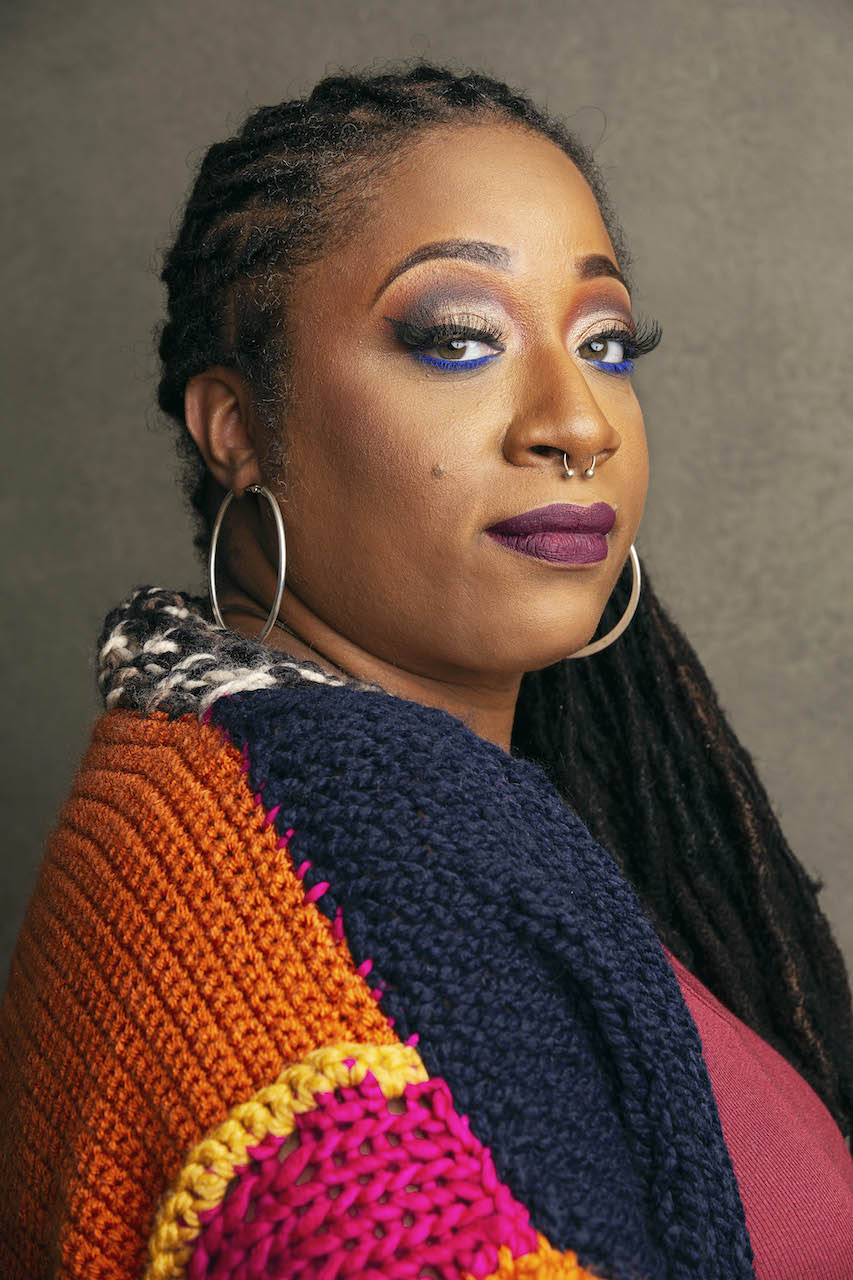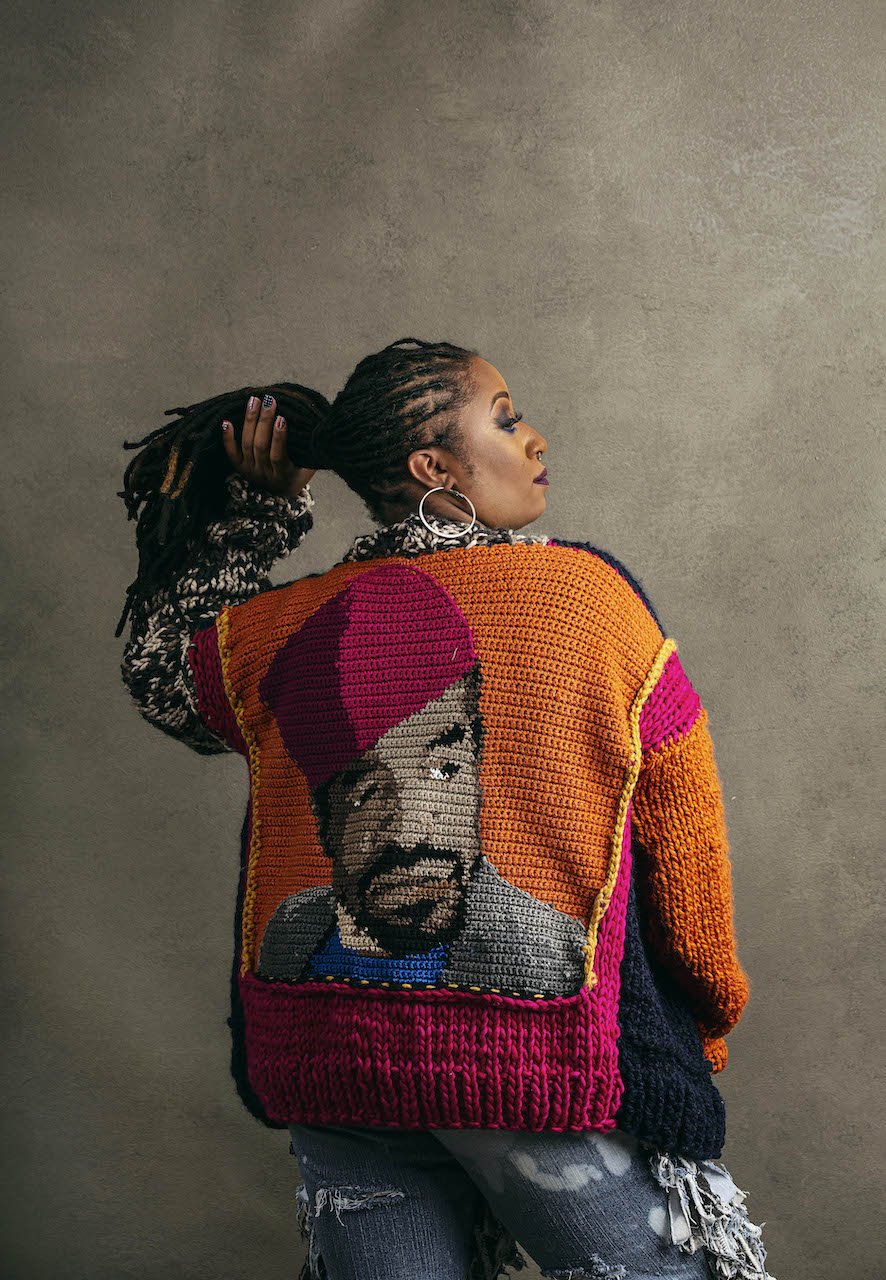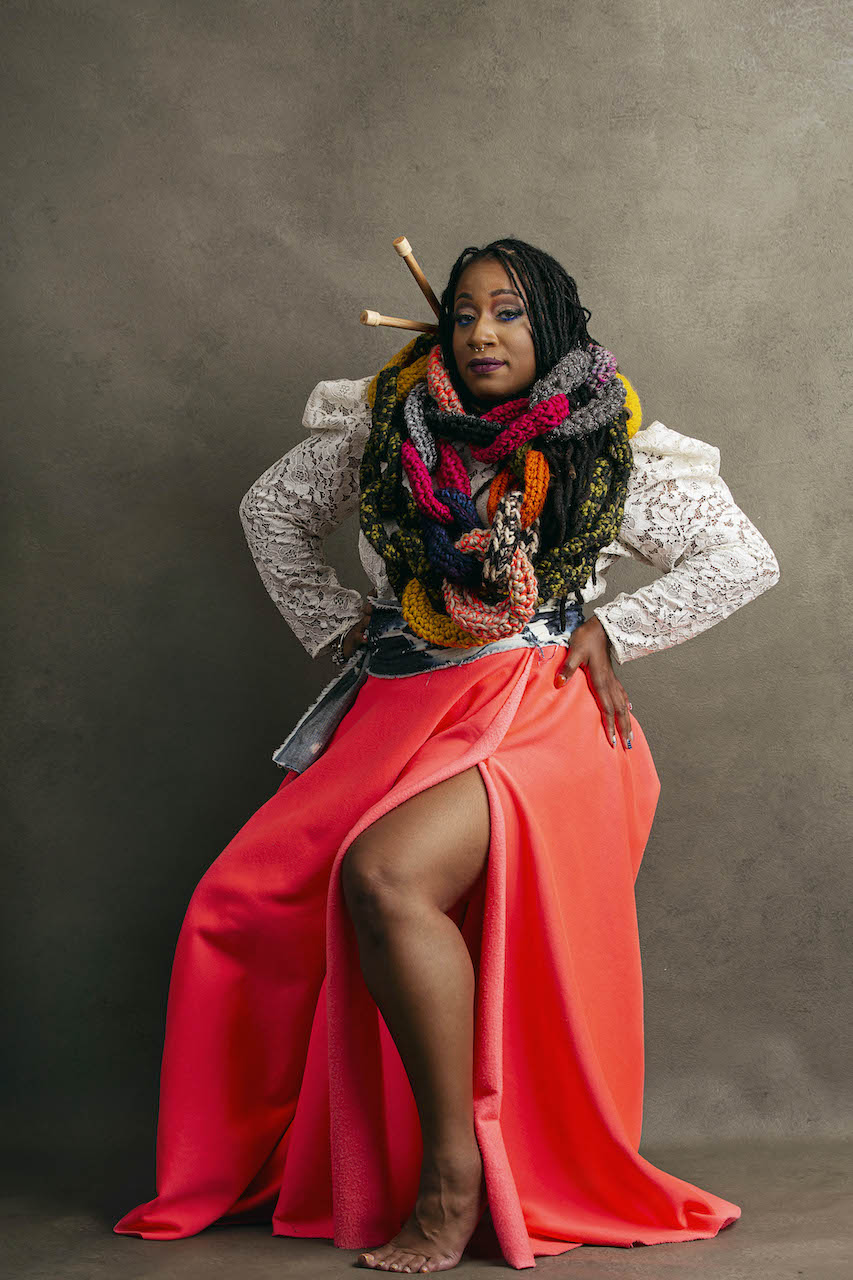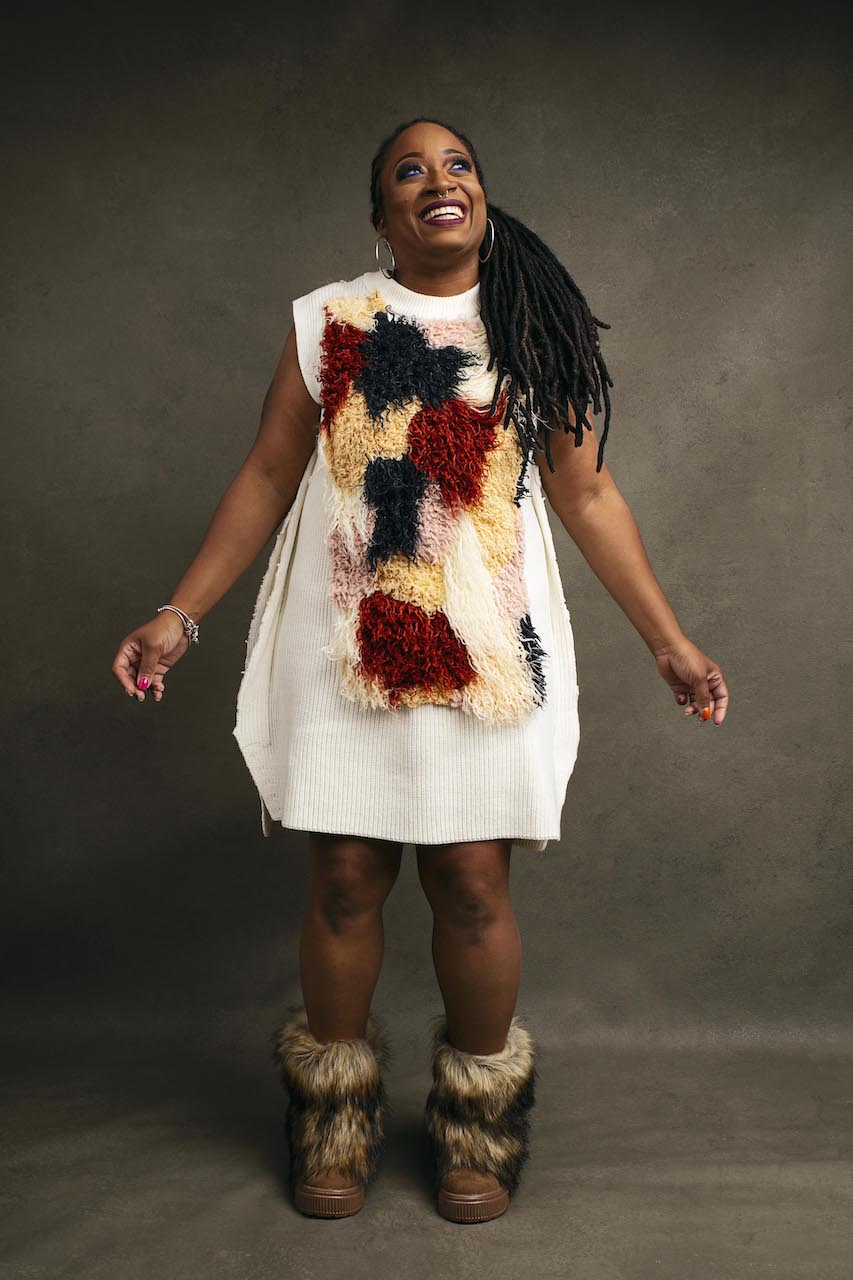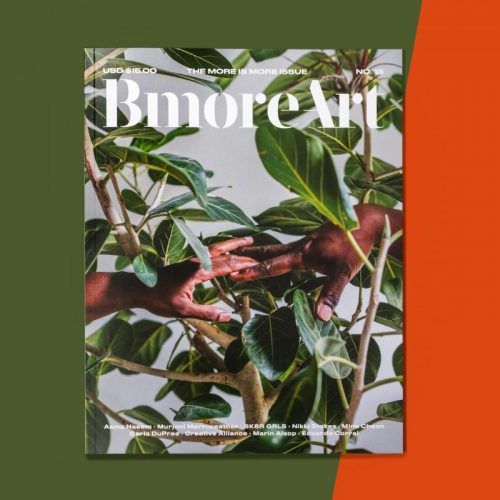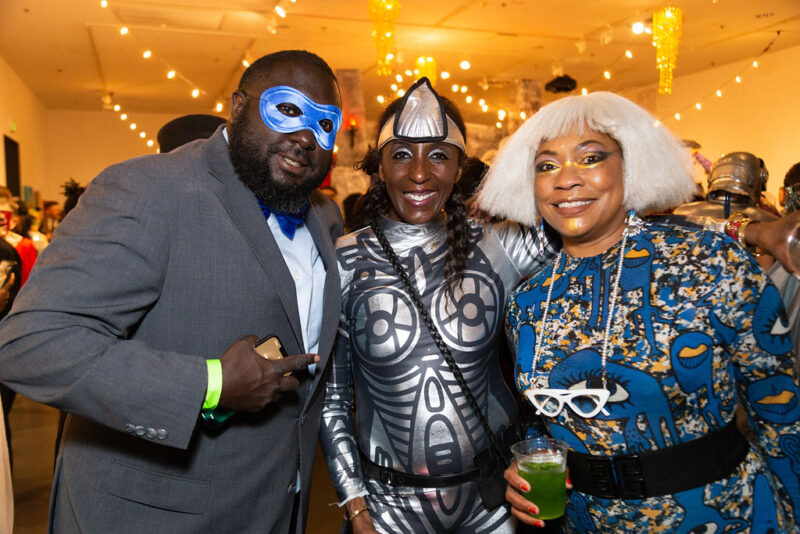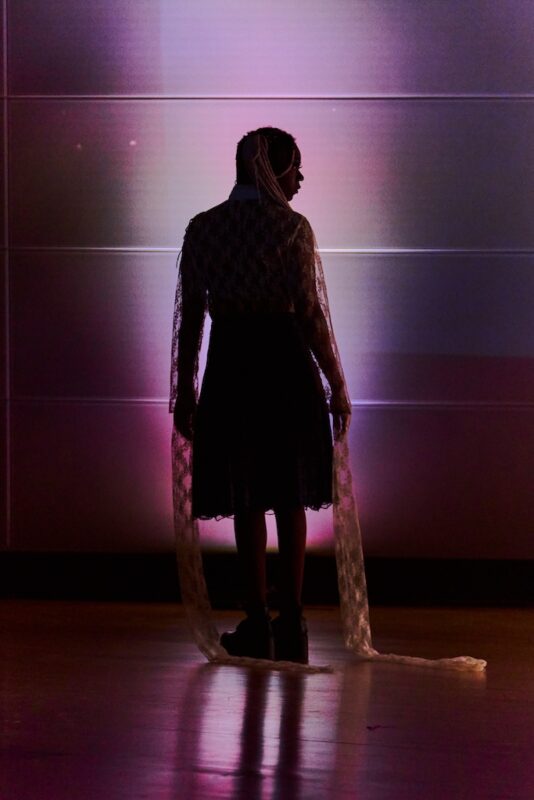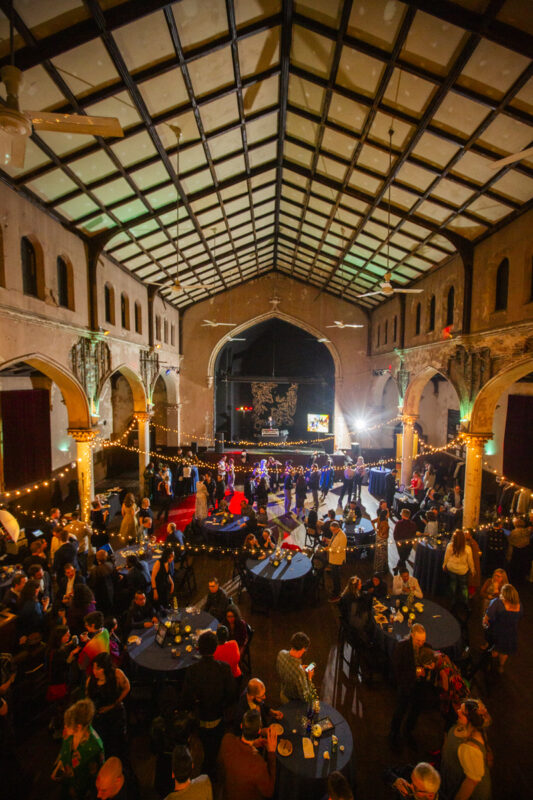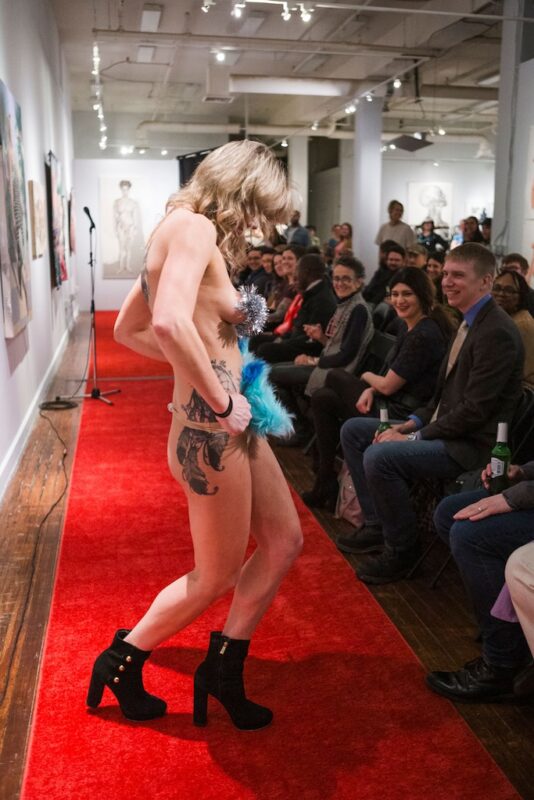When Nikki Stokes started out as a spoken-word artist, she never imagined herself as a fashion designer or a business owner. She always made things but it wasn’t until she became the mother of an autistic son that her desire to create became a significant focus in her life. Stokes taught herself to crochet when her second son, Roman, was a baby, and originally it was a form of soothing and tactile therapy for her own frazzled nerves, especially during the extensive doctor and hospital visits that became a part of her life.
When asked about the formation of HGE Designs, Stokes laughs and says her business started backwards. “I never intended to sell or make anything for anyone else,” she says. “I literally started crocheting for myself as a stress reliever. It just made me happy. And then, I started wearing the hats and scarves and other people wanted to know where I got them. And when I told them I made it, people would ask if I would make them something, too.”
Stokes’ colorful hats and scarves have evolved into one-of-a-kind garments, which can be altered to fit any shape and size. She has been a crochet designer for The Dollhouse Boutique in Baltimore and Los Angeles, where her collaborations with designer Natalie Karyl include dresses and accessories, but also camo jackets embellished with crocheted portraits. She credits Karyl for helping her to price her labor-intensive handmade works and market them to Baltimore-based clients who love one-of-a-kind garments that merge fashion with art.
